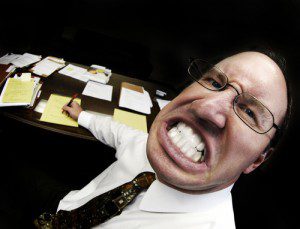 The muscles we use for chewing and speaking are some of the strongest muscles in our body. Four muscles in particular make it possible to speak, close our mouth, chew, and move our mandible (lower jaw) from side to side. When our mouth isn’t practicing any of these normal functions, the upper and lower teeth should rest comfortably together for the majority of the time.
The muscles we use for chewing and speaking are some of the strongest muscles in our body. Four muscles in particular make it possible to speak, close our mouth, chew, and move our mandible (lower jaw) from side to side. When our mouth isn’t practicing any of these normal functions, the upper and lower teeth should rest comfortably together for the majority of the time.
Sometimes, anxiety, anger, or sheer determination might cause us to clench our jaw or grit our teeth. While this is fine on occasion, habitual teeth clenching can lead to problems with the teeth, jaw, or overall health in the future.
What happens when I grit my teeth?
Most people who clench their teeth also grind their teeth. The term “bruxism” refers to both actions. While consistently clenching the jaw can cause some stress to the teeth, grinding the teeth together can lead to worse problems like cracks, chips, and loose teeth.
It is very common for people to experience bruxism while they are asleep, having no idea that they are damaging their smile. Dr. Sands can easily tell if bruxism has been occurring when he examines your mouth at a routine dental visit. If any damage has occurred, he may recommend dental bonding or a much stronger alternative like porcelain veneers to keep up with the consistent damage. He can also customize a mouthguard to be worn at night to help protect your teeth.
What other damage can teeth clenching cause?
Since one of the muscles responsible for bruxism, the temporal fossa, extends all the way into the skull, its overuse can be a cause of recurrent headaches and earaches. “Lockjaw” is also a side effect of bruxism because of the muscle spasms and temporomandibular joint (TMJ) inflammation it can cause.
How do I cure bruxism?
Reducing stress and avoiding food that can be hard to chew, such as toffee, caramel, or steak, will help to relax the overworked jaw muscles. You should also avoid chewing gum and opening your mouth very wide on a consistent basis. Dr. Sands can provide further recommendations for treatment for bruxism during your consultation.
If you are experiencing bruxism or its side effects, Dr. Kevin B. Sands can assess your mouth and provide his recommendation for treatment. To schedule an appointment, please call us today at (310) 27-0111 or fill out our online contact form.